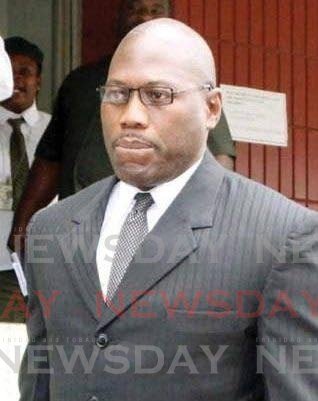DPP appeals judge’s ruling after ex-cop freed of corruption charges

THE Director of Public Prosecutions (DPP) has appealed a judge’s decision to stay an indictment against a former policeman who was accused of corruptly soliciting and receiving a bribe in 2005.
As a result of Justice Gillian Lucky’s decision, the charge against Nawaz Ali was dismissed and he did not face a new trial on the allegations which were against him.
At the High Court proceedings, Ali’s attorney Ravi Rajcoomar sought to have the three indictments stayed on the basis that it would be unfair since, at a first trial, the jury had reasonable doubt on the evidence related to the first two counts, and acquitted him.
It was the intent of the prosecution to use that evidence to support the third count at the second trial but Lucky said to do so would be averse to the fairness of the trial process.
Prosecutor Nigel Pilgrim submitted to Justices of Appeal Alice Yorke-Soo Hon, Prakash Moosai and Ronnie Boodoosingh that the court had the jurisdiction to hear the appeal since any judge-made ruling can be reviewed in accordance with the powers given to the DPP by Parliament.
He said the prosecution needed to use the evidence on the first two counts from the first trial to prove the corrupt receipt of money, not prosecute him on the evidence rejected by the jury at the first trial.
“They all relate to the same transaction- a bribe to secure an acquittal,” he said. Pilgrim was grilled by the judges on the need for separate counts for the same alleged transaction. Would the director be entitled to lay 60 charges if the agreement was to pay $100 a week?” he was asked.
He explained that the Prevention of Corruption Act made it an offence to both solicit and receive a bribe and the director was also entitled to charge as a single transaction or separate ones.
Rajcoomar said it was unfair to rely on the evidence of the acquittal and agreed that that the indictment should not have been spilt into three counts since they were so intimately related.
After hearing submissions, the judge asked for further written arguments on the separation of the counts or if only one was required. They have reserved their decision. At the first trial, it was alleged by the State that on December 29, 2005, Ali solicited from a man a bribe to forbear prosecution in a criminal case.
It was alleged that the two struck an agreement and $4,500 was paid by the man to Ali. It was also alleged that an arrangement was made for the payment of the balance of $1,500, which was made on January 4, 2006, at the Cunupia police station where Ali worked.
The second transaction was allegedly monitored by police as part of a sting operation. An envelope with marked bills was allegedly found in Ali’s pants pocket.
The first two counts related to the first alleged transaction while the third on the second. At the first trial the jury found him not-guilty of the first two counts of soliciting and accepting a bribe, while they found him guilty of the third count.
A Court of Appeal, which sent the case back for a retrial in 2010, said the three counts were inextricably linked and there could be no rational explanation for the jury’s verdicts. It was also for this reason that Lucky did not allow the prosecution to rely on the evidence relating to the first two counts, which had been rejected by the jury, at the fresh trial and stayed the indictment.


Comments
"DPP appeals judge’s ruling after ex-cop freed of corruption charges"